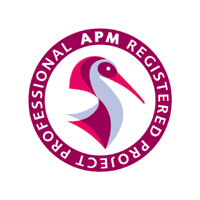Looking at collaboration on projects
So what do people actually do on projects, and in particular do they collaborate with each other? If they do collaborate how has this come about? And if collaboration is lacking, how then do we as project managers and leaders, encourage more collaboration?
What is collaboration?
Collaboration means different things to different people. It may mean working with external partners or agencies, or it may mean colluding with the enemy! What it should mean is a multi-functional team working on a project collaborating together and with the wider organisation in order to produce benefit to all involved.
Groups and teams for the manager and leader
The project manager has a difficult task – building a temporary team for the duration of the project from a disparate group of individuals with a mix of skills, ambitions, motivations, and team working abilities. So what do these people actually do? (This topic will be explored further at the NW APM branch conference on October 10th), and how should we change our management and leadership behaviours through the project life as the group hopefully develops into a fully collaborating team?
Collaborative planning with the project team
As a project manager I believe that we can encourage collaboration by planning with the team (not for the team) in terms of work assignments, estimates, and progress reports. A subtle change in our approach to these tasks can make the team feel more ‘included’ in the project planning process.
Assertiveness
But all the team working in the universe will not resolve a “clash of opinions” or a “conflict of priorities” when dealing with team members. Learning how to assert our views with the project team members increases the chances of getting the desired outcome for the project, but assertiveness is a difficult skill, and done wrongly, can have disastrous effects on team morale.
Negotiation
When assertiveness techniques have failed, it may be necessary to negotiate with team members, and their direct managers in order to resolve potential conflict into a win-win situation. It is vital to negotiate with the person capable of making the decisions!
What do we do to people on projects?
The sum total of all of this ‘team building’, ‘leadership’, ‘assertiveness’ and ‘negotiation’ is to change the way the people on projects behave. Are the team members really free to “get on with their jobs” “without interruption or disturbance”, or are we actually affecting their behaviours and reducing their performance?
In summary: people deliver projects, and will deliver better projects, faster, if they are collaborating as a performing team. I believe that our behaviours as project managers has a profound effect on team morale, and consequent project success.
- Changing leadership styles to suit the team development stage
- The use of collaborative planning with the team to derive the project plans
- Assertiveness correctly used so that team members are not even aware of it
- Negotiation with those who can make decisions about priorities and actions.
However, we should be aware that people have their own motivations, and that these techniques could be viewed as manipulation!
This blog creates context for the APM NW branch conference 'Project manager to leader: Collaborating, influencing and conflict management', to be held on October 10th 2017 at Alderley Park conference centre, Alderley Edge, Macclesfield SK10 4TG.
Further information, including speaker details and the programme, can be found here.



2 comments
Log in to post a comment, or create an account if you don't have one already.
Please see http://www.thesinglemindedproject.com I am interested to collaborate as our goals appear to align. Martin Price mprice@engagementworks.com 01604 700339
BS 11000 has been replaced by ISO 44001 Collaborative Business Relationships Management System.... The world’s first international standard on collaborative business relationships is now available.... https://www.bsigroup.com/en-GB/iso-44001-collaborative-business-relationships/ -- ISO 44001:2017 Collaborative business relationship management systems -- Requirements and framework https://www.iso.org/standard/72798.html ISO 44001:2017 specifies requirements for the effective identification, development, and management of collaborative business relationships within or between organizations..... ISO 44001:2017 is applicable to private and public organizations of all sizes, from large multinational corporations and government organizations, to non-profit organizations and micro/small businesses.... Application of ISO 44001:2017 can be on several different levels, e.g. · a single application (including operating unit, operating division, single project or programme.